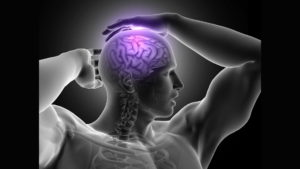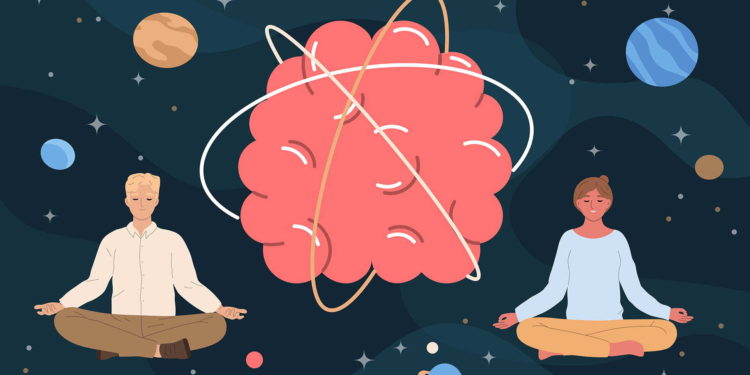The mind-body connection is welcome to a journey focused only on you. Once you realize how important understanding of your body and mind is, you would start taking these things super seriously. Understanding psychosomatic behaviors and how your body and mind work together to create a better, healthier version of yourself is a serious topic that people barely talk about.
This is more than simply a wonderful topic; it is a path to solving the incredible relationship between your mental and physical states.
Simply said, life can be hectic, and we often lose sight of the connection between our well-being and our thoughts and feelings. Mind and body are like best friends, collaborating to make you the incredible person you are.
So let’s pause, explore, and learn the keys to feeling good from the inside out. But you also need to put effort yourself because blessings if not appreciated can turn into harm.
Let’s get started on a better, more energetic self with holistic health nutrition!
What Is Mind-Body Connection?

The compound interaction between our mental and emotional moods (the mind) and our physical health (the body) is known as the mind-body connection. It identifies that our physical health can be influenced by our thoughts, feelings, attitudes, and beliefs, and so does our mental health by our physical one. The body and mind are connected and affect one another rather than existing as separate things.
Put more simply, our thoughts and emotions have an impact on our physical state, affecting things like stress levels, immunological response, and general health. Similarly, our mental and emotional states can be influenced by our physical health. Acknowledging and understanding this relationship is fundamental for encouraging holistic health nutrition and applying strategies that consider mental and physical well-being. Positive mind-body connections are frequently raised by engaging in mindfulness, meditation, and stress reduction techniques.
Nonetheless, let’s put it in more basic terms,
The relationship between our mental and emotional states and our physical experiences is known as the mind-body connection.
Psychosomatic behaviors prove how our thoughts and emotions, such as happiness or tension, may genuinely alter how our bodies behave. It’s like giving our body a pat on the back for being healthy when we are happy. However, stress causes our bodies to react in an exhausting way.
Now it also functions the other way as well! Behaviors that affect our physical health, such as regular exercise and healthy nutrition, can also affect our mental health. When we do productive things our mind and body enjoy it, guaranteeing good health for life.
It’s as if every single organ of our body, heart, stomach, brain, and even our emotions, can communicate with one another. They constantly communicate and exchange information to keep things going smoothly.
To cut a long story, our bodies and minds are our best friends, and when they cooperate, we feel amazing!
Body-mind connection: Are the mind and brain the same things?

No, the brain and the mind are two different things. But they are related. The Mind-body connection or Psychosomatic is also related to the overall framework.
A physical organ that is a component of the central nervous system is the brain. It performs numerous tasks, such as information processing, physiological regulation, and consciousness facilitation. The brain, which is composed of neurons and other cells, is essential for supporting mental, emotional, and several other functions.
The mind, however, is a more complicated and abstract idea. It includes all mental functions and activities, such as memories, thoughts, feelings, sensations, and consciousness.
The subjective experiences and information processing that take place inside the brain are part of the mind, which is not limited to the physical makeup of the brain.
Mind is a more comprehensive term that covers the conscious and subjective parts of human experience, whereas the brain is the physical organ. The brain provides the biological framework for the mind’s operations, and the two operate in a dynamic partnership.
In the journey of good health for life, both play a great role.
In the Mind-body connection, we can have conscious and unconscious mental states, which means we may have strong emotional reactions to events without completely comprehending why. Every mental state has a corresponding physiological reaction, meaning that it can affect the body in either a positive or negative way. Anxiety, for instance, can cause the body to produce stress hormones, which can have an impact on our general health.
Increasing awareness of these mental states is the main goal of many therapies in the context of the mind-body connection. The concept is that we may direct our thoughts and emotions in a more constructive and good direction by increasing our awareness of them.
What Are The Components of the Body-Mind Connection?
- Examination of Mental States
Thoughts: They are mental processes that involve the clarification of information, either consciously or unconsciously. They have a profound impact on psychosomatic ways and how we see and respond to the world, ranging from brief thoughts to attentive reflection.
Emotions: Joy, anger, fear, sadness, and other complex psychological reactions to stimuli are examples of emotions. In the Mind-body connection, these are subjective experiences that frequently take the form of bodily manifestations and impact our actions and choices.
Beliefs: Deeply held principles or acceptances of the nature of reality create beliefs. These are mental models that impact how we perceive the world, ourselves, and other people, which in turn affects how we behave and think.
Attitudes: In Mind-body connection, they are susceptibilities or assessments of a specific thing, person, or circumstance. They reflect an in-built feeling to constantly react favorably or negatively, which affects our beliefs and actions.
- Conversation about How These Mental States Affect Physical Health:
Mind-Body Connection: This concept highlights how strongly mental states affect physical health. Chronic stress, for example, or negative thought patterns can be linked to several medical conditions, such as immune system deficiencies, digestive disorders, and cardiovascular problems.
Psychoneuroimmunology (PNI): PNI studies how the immune system, neurological system, and psychological processes interact. Studies in PNI show that while negative mental states, like persistent stress, may impair immunity, positive mental states, like optimism, might strengthen it.
Psychosomatic Effects: Psychosomatic effects are the result of emotional variables influencing physical symptoms; mental states can contribute to these effects. For instance, chronic worry may be a factor in headaches, tense muscles, or uncomfortable digestion.
Placebo and Nocebo Effects: Attitudes and beliefs can affect how the body reacts to medical interventions. In the Mind-body connection, the nocebo effect draws attention to the unfavorable effects of negative expectations, whereas the placebo effect illustrates the beneficial effects of optimistic beliefs on health.
Health for Life: An Overview Of Chemical Messengers
Hormones: Endocrine glands discharge hormones into the bloodstream, which are chemical messengers. In the Mind-body connection, they control numerous physiological functions, such as growth, metabolism, and stress reaction. One stress hormone that affects the body’s fight-or-flight reaction is cortisol.
Neurotransmitters: Chemical compounds called neurotransmitters are responsible for sending messages between nerve cells. They are essential to the nervous system’s communication. For example, serotonin helps control mood, whereas dopamine is linked to pleasure and rewards.
Neurons in the nervous system: Electrochemical signals are how neurons in the nervous system communicate with one another. Neurotransmitters are released into the synapses, which are tiny spaces between neurons when an electrical impulse reaches the axon terminal, the end of a neuron. The signal is transmitted by these neurotransmitters binding to receptors on the neighboring cell.
Body-mind connection: Stress and Physical Well-being:
- Analyzing the Evidence-Based Link:
Cortisol and Stress Response: The body’s main stress hormone, cortisol, is released in response to stress in the body-mind connection. While cortisol plays a critical role in acute stress reactions, chronic stress can result in persistently high cortisol levels, which can worsen several health problems.
Effect on Cardiovascular Health: Long-term stress raises the risk of heart-related issues such as hypertension, atherosclerosis, and raised heart rate and makes worse health for life. Over time, prolonged stress can put a strain on the cardiovascular system.
Immune System Suppression: A compromised immune system has been related to stress. Elevated cortisol levels have the potential to impair immunological function, making people more vulnerable to infections and diseases.
Inflammation: In Mind-body connection, chronic stress has been linked to systemic inflammation, which is a factor in numerous chronic diseases, including diabetes, autoimmune disorders, and some types of cancer.
Mind-body connection: Yoga, Mindfulness, and Its Effect on the Body
- Examining the Beneficial Effects of Exercises like Yoga and Meditation on the Body-mind connection:
Mindful movement is a key component of yoga, which promotes mindfulness and attention to the present moment. This activity raises a sense of balance and improves body awareness by connecting people with their bodies.
Meditating and Mental Health: Meditating helps to develop a clear, concentrated mind. Stress and anxiety can be reduced by engaging in practices like mindfulness meditation, which teaches people to examine their thoughts without passing judgment. Emotional control and decision-making are enhanced by this mental clarity.
Nervous System Balancing: It has been demonstrated that yoga and meditation can balance the autonomic nervous system. Deep breathing exercises can also help to activate the parasympathetic nervous system, which promotes relaxation.
Mind-Body Connection: To promote a strong mind-body connection, yoga, and meditation both place a major emphasis on the integration of breath, movement, and attention.
- Review of Research on the Impact of Mindful Breathing and Movement on Emotional Health:
Reduction of Stress Hormones: Research has shown that yoga’s careful movement and controlled breathing lower cortisol and other stress hormone levels, promoting relaxation.
Emotional Regulation: Enhanced emotional regulation has been linked to mind-full activities. Regular practice of yoga and meditation may improve mood and increase one’s capacity to handle stress.
The Ending Notes
A good Mind-body connection means good and stable health for life.
Physical and mental health are both important and the biggest mistake people make is when they treat both as different or, one more important than the other. The above guide has highlighted all the important factors so that people can be aware.
However, in case of medical emergencies or alert conditions, consult an expert doctor or healthcare provider.
Furthermore, take care of yourself with everything important.
So, what did you understand from Mind-body connection or Psychosomatic behaviors?













